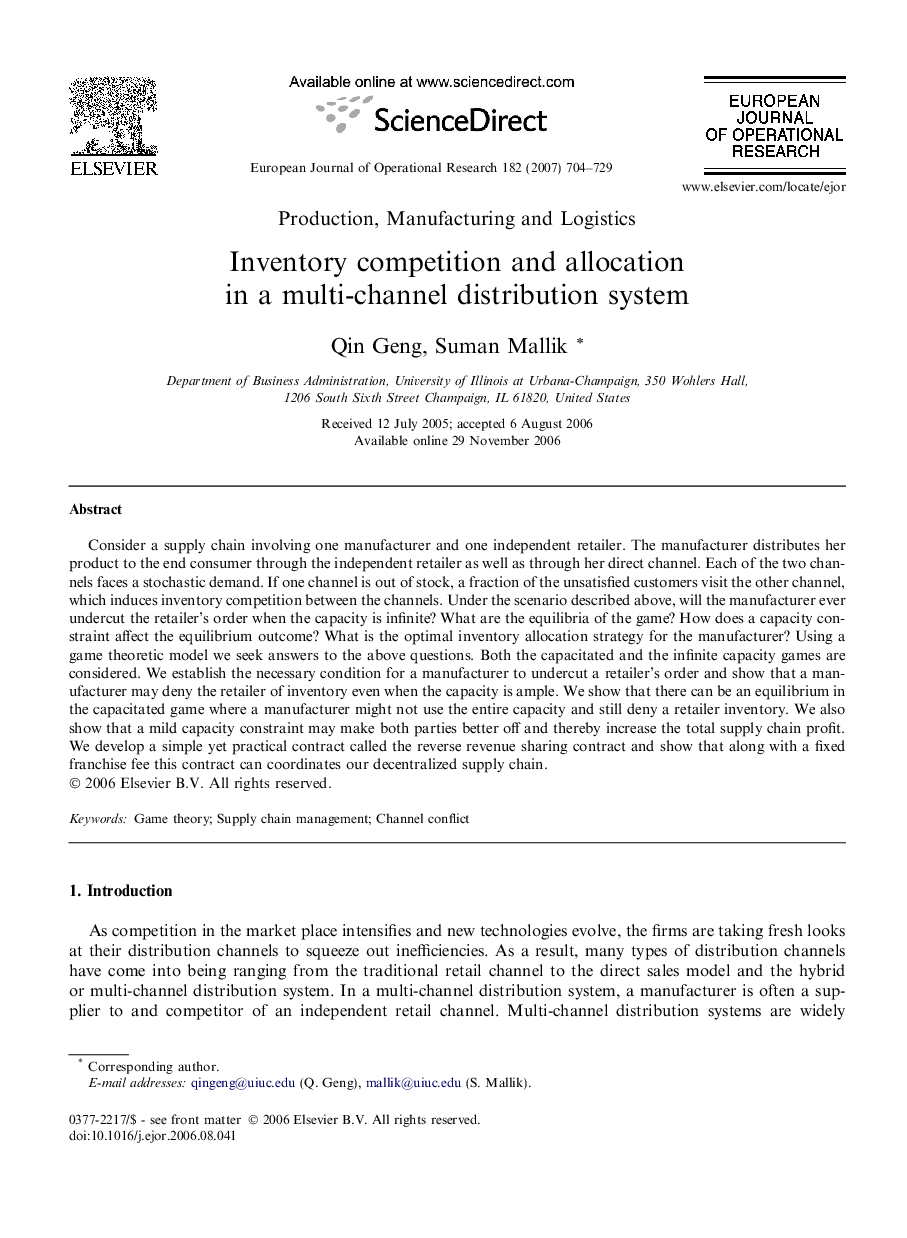| Article ID | Journal | Published Year | Pages | File Type |
|---|---|---|---|---|
| 477757 | European Journal of Operational Research | 2007 | 26 Pages |
Consider a supply chain involving one manufacturer and one independent retailer. The manufacturer distributes her product to the end consumer through the independent retailer as well as through her direct channel. Each of the two channels faces a stochastic demand. If one channel is out of stock, a fraction of the unsatisfied customers visit the other channel, which induces inventory competition between the channels. Under the scenario described above, will the manufacturer ever undercut the retailer’s order when the capacity is infinite? What are the equilibria of the game? How does a capacity constraint affect the equilibrium outcome? What is the optimal inventory allocation strategy for the manufacturer? Using a game theoretic model we seek answers to the above questions. Both the capacitated and the infinite capacity games are considered. We establish the necessary condition for a manufacturer to undercut a retailer’s order and show that a manufacturer may deny the retailer of inventory even when the capacity is ample. We show that there can be an equilibrium in the capacitated game where a manufacturer might not use the entire capacity and still deny a retailer inventory. We also show that a mild capacity constraint may make both parties better off and thereby increase the total supply chain profit. We develop a simple yet practical contract called the reverse revenue sharing contract and show that along with a fixed franchise fee this contract can coordinates our decentralized supply chain.
